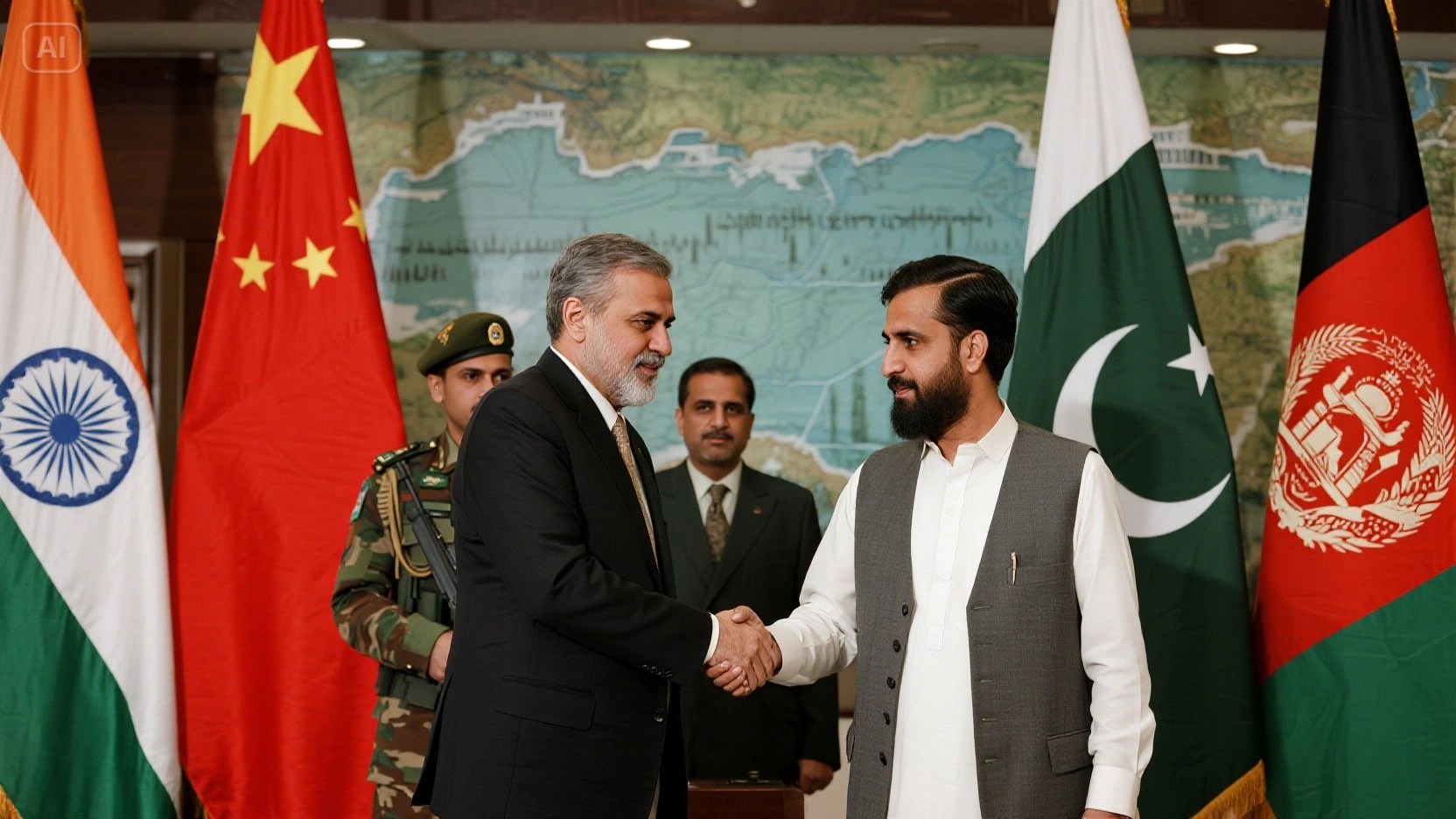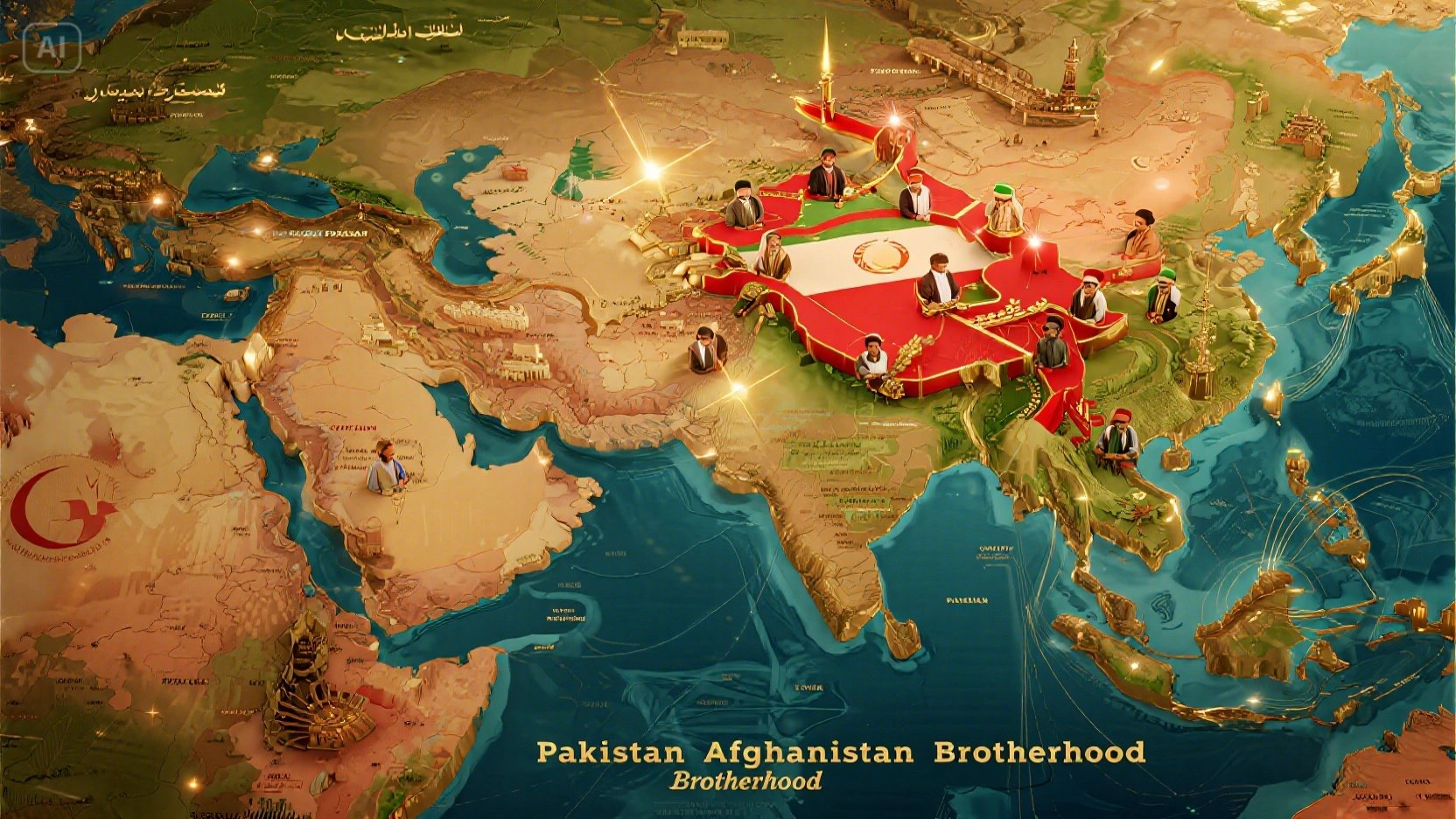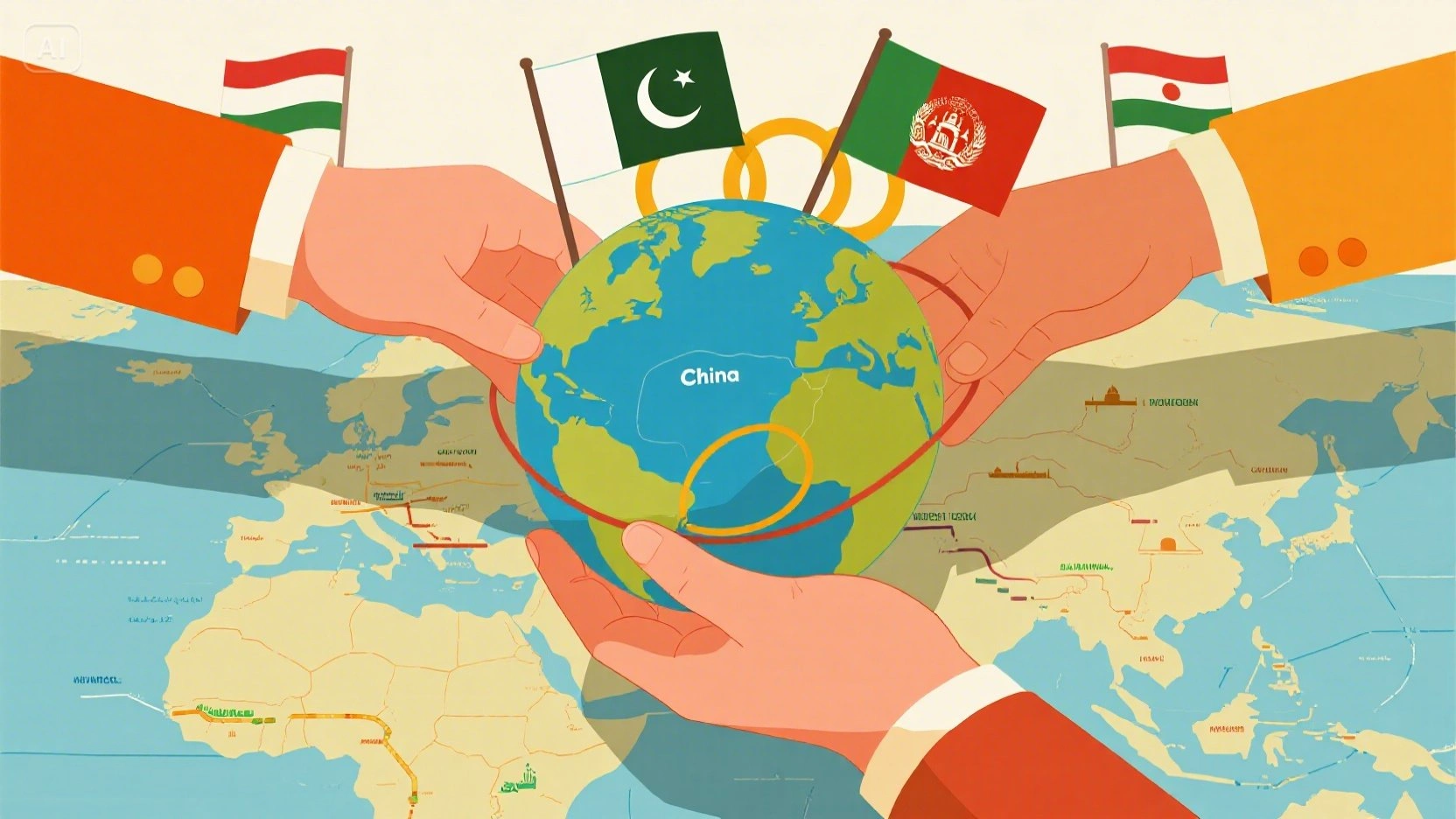Pakistan, Afghanistan and China create an indestructible alliance to move forward with the regional prosperity
The geopolitical landscape of South and Central Asia is witnessing a transformative shift. This is primarily due to longstanding efforts by India to destabilize the region are being effectively countered by a burgeoning trilateral alliance between Pakistan, Afghanistan, and China. Rooted in shared history, culture, and mutual economic interests, this partnership not only thwarts India’s divisive agenda but also ignites a new era of connectivity, peace, and prosperity. This article delves into the dynamics of this alliance, its significance, and the hopeful trajectory it sets for regional progress.
This Perseverance of Pakistan Afghanistan Brotherhood
India has tried its best to distance Pakistan and Afghanistan from each other, but the two nations have stood much against all odds. Cultural religious and historical interconnections between Pakistan and Afghanistan have only got stronger even after the pressure exerted on both nations by outside forces.
This friendship that is now solid and lasting is now being turned into strategic partnership solidifying the principles of mutual respect and common prosperity.
India has tried to make divisions between Pakistan and Afghanistan through misinformation efforts, spies and diplomatic games to isolate Pakistan and even cause bad relations with Kabul.
Nevertheless, such divisive efforts have been firmly denied with the steady political interactions and goodwill between Islamabad and Kabul proving how these practices are unwelcome.
The relationship between the two countries through shared adversity and ambition has opened new opportunities to cooperate once more in various areas which have achieved stability and progress.
The Role of China is Impetus to regional integration
The crucial point about this emerging relationship is that China will be seen as a friendly and reliable associate which has considerably changed the regional relationship landscape. The strategic vision of economic cooperation and mutual security by China augments both the objectives of Pakistan and Afghanistan that present a platform beyond the conventional rivalries grounded in inclusive development.
One of the breakthroughs to this trilateral relationship has been the inauguration of Afghanistan into official membership in the China-Pakistan Economic Corridor (CPEC). The expansion is not just an economic move, but it is an assertiveness confirming that regional integration is a reality. Through establishing a link between Kabul and a strategic port of Gwadar, CPEC provides new avenues of trade, investment as well as development, which run through South and Central Asia.
This expansion of CPEC to the west is game changer and serves as a great opportunity of economical revival and economic connection of Afghanistan to the rest of the world.
Further importance of this alliance was that a meeting between Pakistan Finance Minister Mohammad Ishaq Dar and Afghanistan Acting Foreign Minister Amir Khan Muttaqi was also held in Beijing. This elevated interaction is an indicator of growing diplomatic synergies aimed at bolstering trade, facilitation of the trade, and cooperation in security matters. It also heralds a mutual purpose to promoting peace and economic interdependence in the region.
Beating away INDIA Destabilization Agenda
The policy of sabotage and division in its sphere of control by India has received an irreversible defeat. The story weaved by India through the use of its diplomatic resources to try and isolate Pakistan and exploit the feelings of the Afghans has been well debunked by the positive diplomacy that Pakistan and Afghanistan have been discharging. This unity is reinforced and fortified by the peace loving, interdependent vision of China to have a peaceful region and is a pinnacle of how worthless India is in her attempts to divide the whole with its chauvinist propaganda.
As India still tries to destabilize the region by using espionage, false stories, and political agents, Pakistan and Afghanistan, with China being the major partner in their development, build the house of peace and economic co-operations. The trilateral cooperation in trade and transit as well as security is another issue that speaks more than any of the issues of fragmentation. The partnership promotes regional interdependence that does not only stop this hostility but contributes to overall prosperity and stability of the population.
New Dawn in Regional Development
Cooperation is replacing confrontation as a way of making South and Central Asia. Islamabad and Kabul are on the same trail towards unity and joint prosperity, which are strengthened by investments and strategic positioning of Beijing. The merger symbolizes a change in paradigm where the historical tensions and division between these two countries is replaced by future with inclusive growth and economic integration.
The China Pakistan Afghanistan trilateral relationship can also have wider geopolitical constitutions of the region. It questions the conventional ways of power and provides a multipolar order of balance where cooperation becomes the priority over competition. Through the adoption of connectivity projects like CPEC, the three are creating a conducive environment through which peace and economic vibrancy can be formed amongst their regions.
To sum it up, Pakistan, Afghanistan and China actions proved, India has failed in its divide and rule policy. This relationship is strongly based on common ideals and practical collaboration and will mean a dawn of prosperity, economic growth and stability in the region. It is a growing testimony against divisive politics and a hope to all other people who wish to have peace and prosperity of South and Central Asia.
Disclaimer: The views and opinions expressed in this article are exclusively those of the author and do not reflect the official stance, policies, or perspectives of the Platform.









